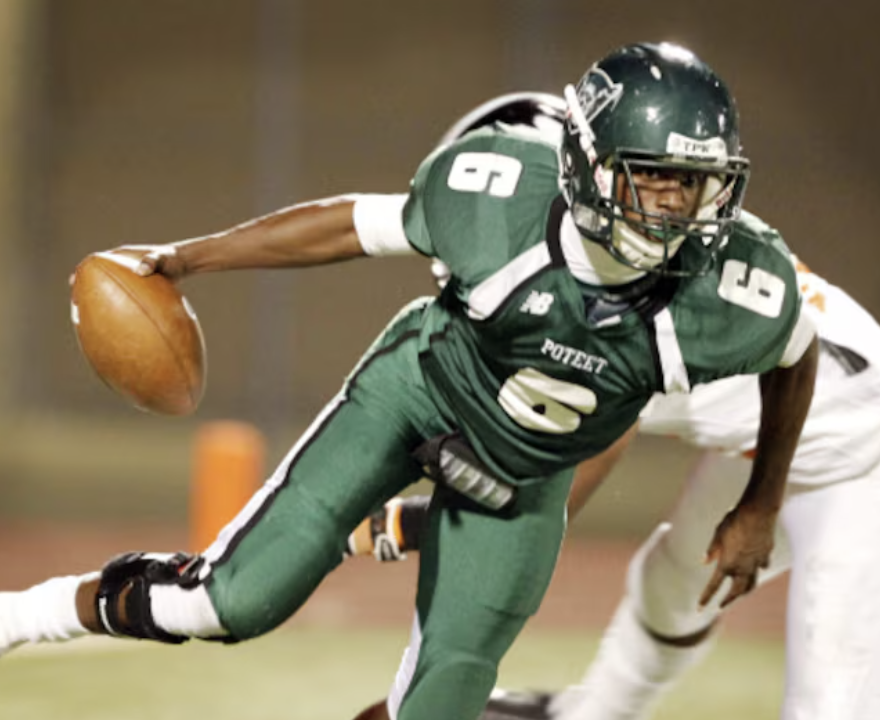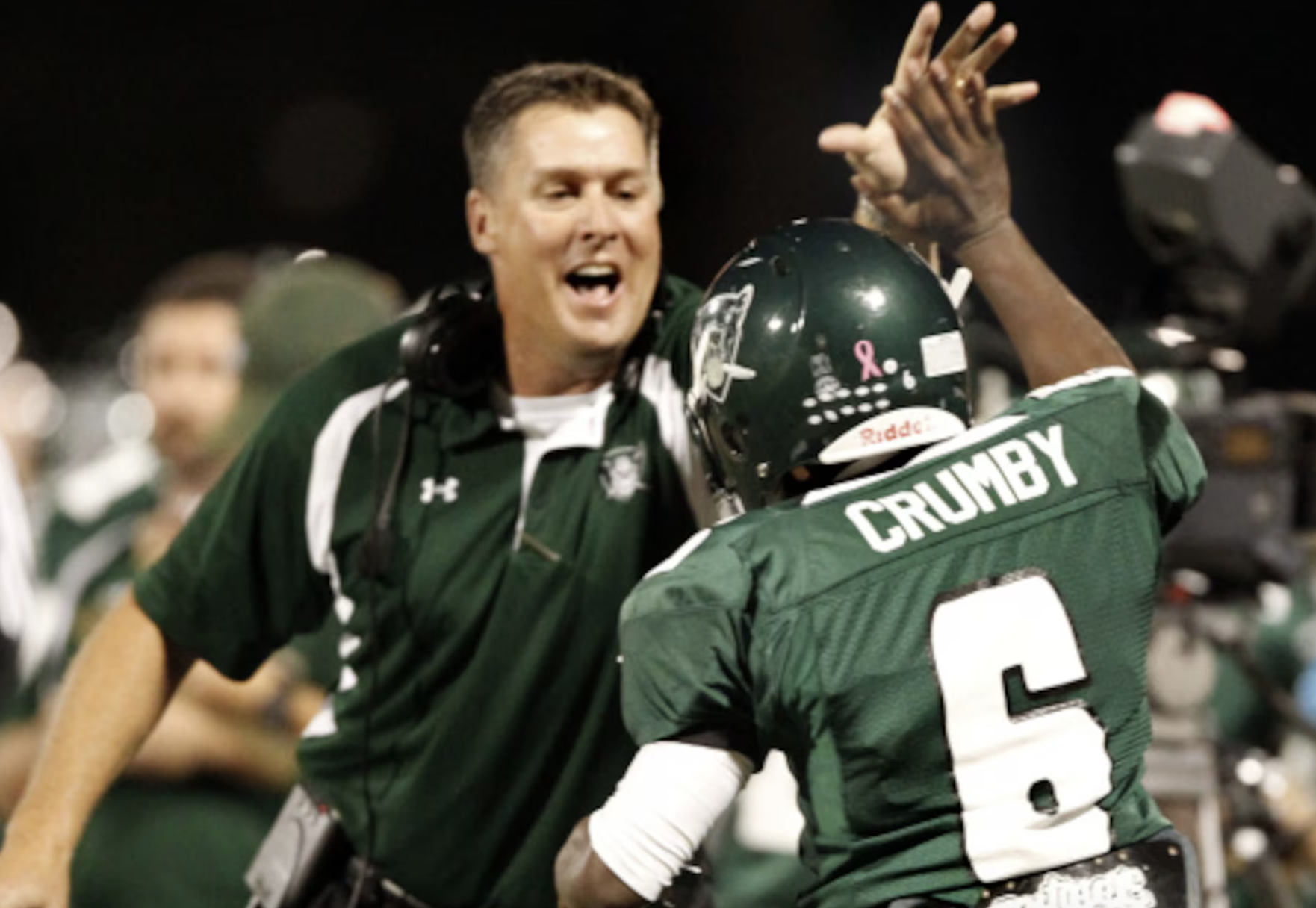The One Thing every Coach Must Do
I got the call no coach ever wants.
Courtland Crumby — one of the key players from our magical 2010 semifinal run at Mesquite Poteet — had been killed in a motorcycle accident. He was just 32.
My heart sank.
Courtland didn’t just walk into a room — he lifted it. His smile, his energy, his spirit… unforgettable.
After paying my respects at the casket, I found a seat near the back, next to Justin Velasquez. Justin was a former teammate of Courtland’s and someone I had coached with for several years. We had become good friends, and I was grateful to sit with him. A few former players from the 2010 team were there, but I didn’t recognize most of the over 200 people in the room.
Images played on TV screens — moments from a life cut far too short. Some of his football playing days, from little league to high school.
Just two weeks after being cleared to return, Courtland led us to a stunning 24-17 upset over #2-ranked Lancaster.
Then his stepfather stood up and said something I didn’t expect:
“We’re going to open up the floor to anyone who’d like to say a few words. We’re on a schedule, so I’ll ask you to keep it to two minutes — we want to give everyone a chance to speak from the heart.”
Many of Courtland's friends and family spoke, sharing their hearts about why they loved him and why he will be so deeply missed.
To be honest, this was the first wake I’d ever attended, and I had no idea what to expect. I hadn’t planned to speak, and I certainly hadn’t prepared anything. As people began sharing, I felt a swirl of nerves in my stomach — wondering if it was okay to just sit quietly and not say a word.
The more people spoke, the more memories of what made Courtland special came rushing back — and with them, a growing urge to stand up and share. I’ve told the story countless times over the years about his ACL tear during spring practice and how the doctors said he wouldn’t be able to play his senior season. But Courtland attacked rehab like a man possessed. By week five, he was back on the field. We ended up playing 15 games that season. After being told he was done, he got a full season. That’s who he was - he was Superman.
Then I remembered week seven. We were up against an undefeated team. If we lost, we’d miss the playoffs. To make it worse, our starting quarterback was out with a concussion. Courtland, just back from injury, moved from receiver to quarterback — and led us to a 24-17 upset. He was Superman.
I thought about his parents and how much they needed to hear this story at this moment. It struck me that his young children deserved to know who their dad was and what he meant to the Poteet Pirates. We all need reminders of the importance of perseverance, leadership, and being present when it truly matters.
I still hesitated. While I recognized how meaningful these stories would be for his family, I wasn't certain if it was my place to share them—especially since I hadn't seen his parents in 15 years and didn't know many of the people there.
Just then, Justin leaned over and said, “Go say something, Coach.”
He was right.
I took a deep breath, stood up, and made my way to the front.
When it was my turn, I said: “I’m Randy Jackson. I had the honor of coaching Courtland his senior year. Courtland was special. In fact, he was Superman…”
Every coach will one day face this moment — the chance to speak at a player’s funeral or wake. When that moment comes, don’t hesitate or wait for someone else to take the lead. Get up and share your stories, express the impact the player had, and speak from the heart.
They deserve that tribute—Courtland certainly did. They all do.
Courtland and I after he scored on a QB run to put us up 17-7 against #2-ranked Lancaster — a moment I’ll never forget.

